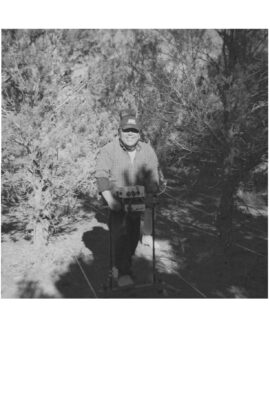Will Tsosie – “Ad i i l a, H á d i i l i ł ? !: perspective from a practicing native american archaeologist”

Heritage is property that is or can be inherited. The questions are who’s property and why? Property, in this case heritage, is a commodity which is owned, used and controlled. Management of cultural resources is the control of cultural assets? Property, assets and control are the American 21st century capitalistic reality link to heritage. Heritage is now part of the business of becoming rich and powerful. Tribal identity has become being American and even being corporate. Tribes have lost sight of respect and honoring of their traditional ways. Learning consumerism and politics, tribes use man made laws for Tribal control, even against or over each other. How sad.
Vs. or Compared to:
In general, Native Americans see a living natural world where humans are equal to all in nature. There are insect people, animal people, plant people and many other people. There is spirit in everything and everything lives and is respected. Generations of humans and human worlds have climaxed and died. Their burials and ruins were remembered, respected and for the most left alone. In a modern world, values are different. Navajos say: it was arrogant to think you own or control the land. It was arrogant to think you could control nature. Being a steward was also an arrogant concept to Native People. Stewardship means having dominion over something. This Native American archaeologist has infiltrated archaeology to give voice to native people by sharing the Native American perspective to Southwest archaeology.
William B. Tsosie Jr. is an orthodox Navajo traditionalist and resides in the Four Corners region of the Navajo Reservation. He has Bachelor of Arts degree in Anthropology and Southwest Studies from Fort Lewis College in Durango, Colorado. He is currently working as a field archaeologist for Stratified Environmental and Archaeological Services of Ignacio, Colorado. His traditional Navajo knowledge has been intergraded into his love for history, culture and tourism of his Navajo people.
 All Posts
All Posts